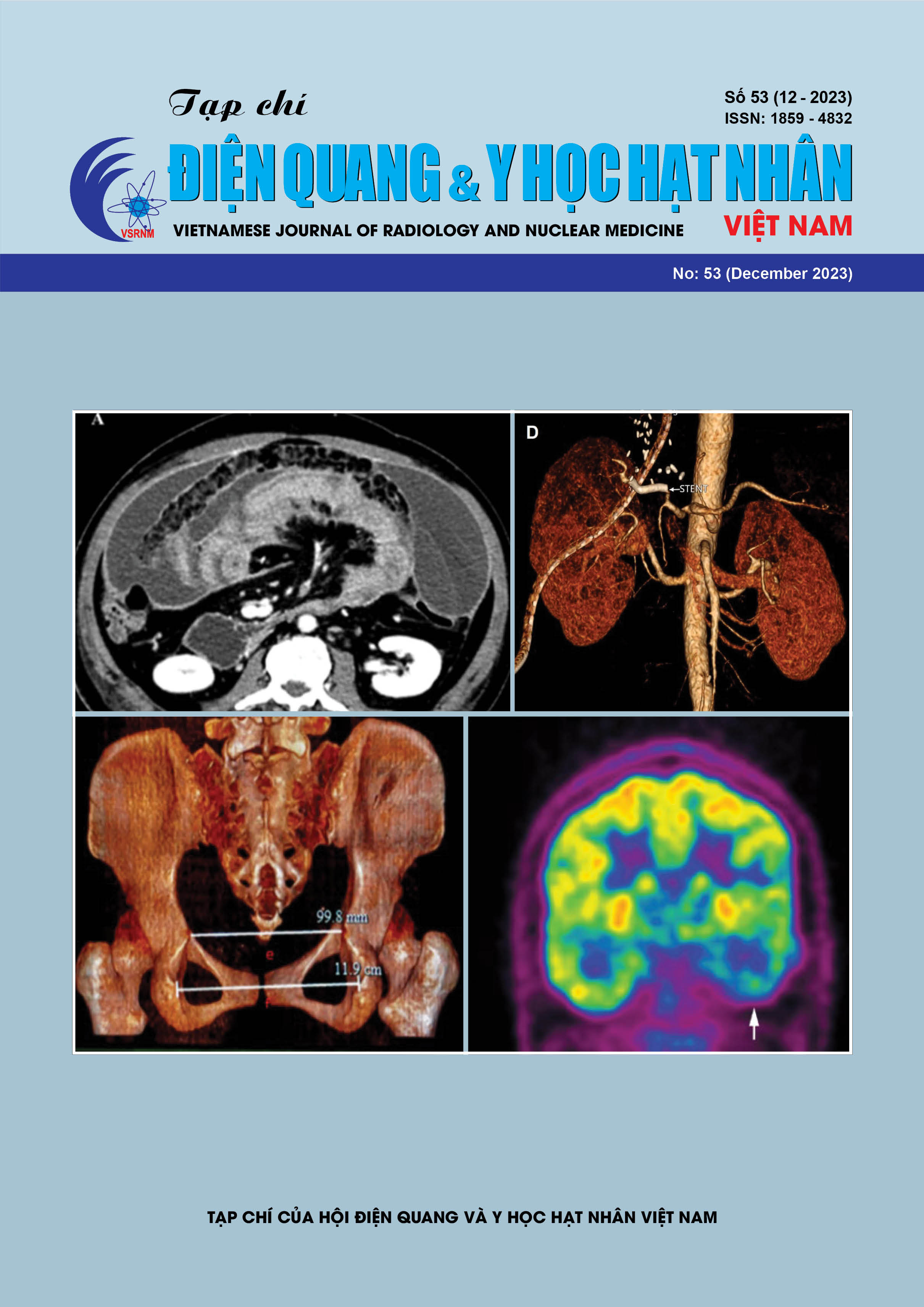Role of pet/ct in breast cancer
Abstract
Introduction: Breast cancer is one of the most common cancers in women. Accuracy stage diagnosis helps to treat the patient effectively and can prolong the patient's survival time. PET/CT is an effective modality of breast cancer diagnosis and staging.
Objective: This study evaluates the role of changing breast cancer stage after PET/CT scan, and also evaluates the level of FDG absorption according to the SULmax.
Subjects and methods: The study enrolled breast cancer patients undergoing PET/CT scans in 2020. The patients excluded patients who fell into the following situations: bilateral breast cancer, have other cancers, lack of information on disease stage, and blood sugar when radioactive injection is greater than 200 mg/dL. The dose of FDG for patients is 0.1mCi/kg body weight. PET/CT scan from the skull to the upper thigh. Data is recorded before and after the capture. Data processing with MS Excel and SPSS 25.0.
Methods: Retrospective, descriptive case series
Results: After screening, 80 patients were included in the study. Of these, 47.5% (38 patients) are left breast cancers and 52.5% (42 patients) are right breast cancers. Purpose of PET/CT scan, 33.8% are taken to diagnose the stage and most of the rest are to evaluate recurrence and metastasis. Stage change after PET/CT was recorded as 47.5% (38 patients) with a 45% (36 patients) stage increase and a 2.5% (02 patients) stage reduction. When evaluating FDG absorption according to SULmax, primary tumors showed the highest absorption. Of the biological subgroups, the triple negative subgroup had the highest mean absorption. Regarding detected metastatic lesions, lung-pleural metastases accounted for the highest rate with 38.25% (13 patients). In addition, 26.27 % (09 patients) of cases of metastasis from two organs were detected.
Conclusion: PET/CT enabled nearly half of the patients to be staged correctly and receive adequate treatment. At the same time, the remaining patients are also treated with peace of mind according to the current strategy. PET/CT also helps to evaluate the glucose metabolism of malignant lesions or detect early recurrence and metastases without any morphological changes

